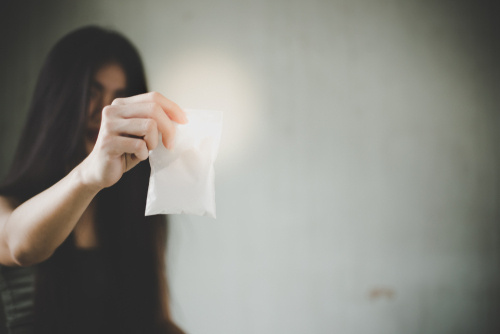Overcoming Addiction in the African American Community: Challenges and Solutions
Substance use disorder (SUD), colloquially known as addiction, is listed in the Diagnostic and Statistical Manual of Mental Disorders, Fifth Edition (DSM-5), as a chronic, relapsing brain disorder. It is characterized by the American Society of Addiction Medicine as the “inability to consistently abstain, impairment in behavioral control, craving, diminished recognition of significant problems with one’s behaviors and interpersonal relationships and a dysfunctional emotional response.” Although the exact reason behind why an individual develops substance use disorder remains unknown, there are several risk factors (e.g., environmental risk factors, genetic risk factors, psychological risk factors, socioeconomic risk factors, etc.) that have been reported to increase one’s propensity for developing addiction. The path of recovery from SUD is not necessarily linear, nor will it be the same for every person. The general treatment process for addiction is often comprised of the following three stages, in sequential order: detox, participation in a formal substance abuse and/ or addiction treatment program, and aftercare.
Challenges and Solutions
Data presented in the 2021 National Survey on Drug Use and Health (NSDUH) indicates that “Black Americans have similar rates of substance use disorder (17%) as non-Hispanic Whites, but higher rates of illicit drug use (24.3 vs 22.5 respectively) and unmet treatment needs (16.4% vs 15.7%, respectively).” Black and African Americans, along with other minority groups, face unique challenges when it comes to overcoming substance use disorder for a variety of reasons. Some of these challenges and possible solutions, provided by The Substance Abuse and Mental Health Services Administration (SAMHSA), include the following:
- Mental Health stigma which hinders Black and African Americans from seeking help. Overcoming stigma requires promoting open conversations about mental health and addiction. Encouraging peer support, providing education on addiction and its effects, and highlighting successful stories of recovery within the African American community can help break down the stigma.
- Experiences of bias, stemming from historical, structural, and systemic racism, and discrimination. A paper, called Racial Inequities in Treatments of Addictive Disorders, published in a recent American Academy of Addiction Psychiatry newsletter, explain that the inequities in addiction treatment are multifactorial and advocacy for changes in drug policies can help address these inequities.
- Mistrust of the health care system, access barriers and negative encounters with care professionals. Partnerships with local organizations and leaders along with community engagement is critical to increase trust in the healthcare system, decrease stigma against SUD treatment, and essential for developing treatments that are culturally responsive.
- Lack of culturally competent providers to meet cultural, social, and language-related needs. This issue could be remedied by streamlining cultural competence, which is the capacity to function effectively in cultural settings other than one’s own, among mental health providers and addiction treatment specialists.
As suggested above, several actions can help reduce the inequities surrounding substance use disorder treatment faced by members of the African American community, including advocacy, community partnerships, and increasing knowledge on providing culturally responsive care.
For Information and Support
Substance abuse and addiction can be incredibly dangerous and can result in severe short and long-term consequences. If you or someone you know is suffering from substance abuse or addiction, please get help as soon as possible. The earlier you seek support, the sooner you and your loved ones can return to leading happy, healthy, and fulfilling lives. There is no reason to go through this alone, and we are here to help. Please feel free to reach out to us for further information or with any questions regarding substance abuse or addiction. We are available anytime via telephone at: 213-389-9964, or you can always email us at: info@friendlyhousela.org.



